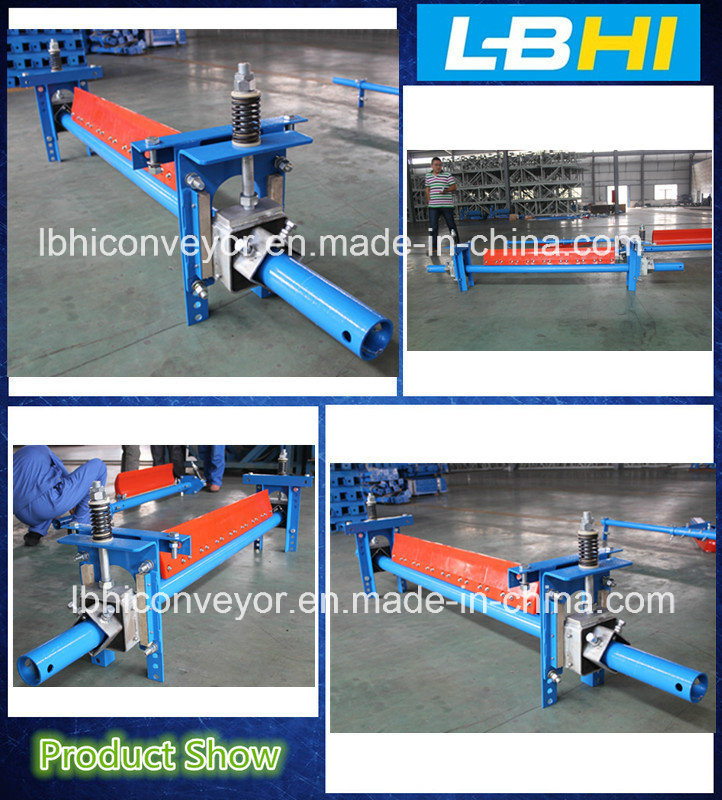Bio-based PHA Staple Fibers Marine Degradation Home Compostable PHA staple fibers Marine degradation home compostable Ningbo Neon Lion Technology Co., Ltd. , https://www.neonliontech.com
LBHI is a leading manufacturer specializing in material handling solutions for industries such as power generation, mining, chemical processing, and metallurgy. Based in Tai'an, Shandong, our state-of-the-art manufacturing facility spans over 266,000 square meters, with more than 130,000 square meters dedicated to fabrication and workshop operations. This allows us to handle even the most complex bulk material handling systems in-house, combining international engineering standards with advanced manufacturing capabilities.
We are fully certified with ISO9001, ISO14001, OHSAS18001, and GB/T28001, ensuring that all products meet global quality and safety requirements. Our products comply with American, European, and international standards, and we also hold the EN-1090-2 structural steelwork certificate. With over 250 registered patents, LBHI continues to innovate and deliver high-quality, reliable solutions.
Product Description
The QSE 140 secondary belt cleaner is specifically designed for continuous operation in harsh environments. As the second stage in a multi-stage cleaning system, it effectively removes sticky residue from conveyor belts. The scraper can be made from either polyurethane or tungsten alloy, depending on the application requirements.
Product Advantages
1. Equipped with a spring tension device, the cleaner maintains consistent contact with the belt even when the scraper wears down or the belt shifts.
2. The split-type scraper design allows for individual replacement based on wear conditions, making maintenance easier and more cost-effective.
Model No.: QSE 140
Scraper Material: Polyurethane and Tungsten Alloy
Engineer Available: Yes
After-Sale Service: Yes
Trademark: LBHI
Transport Package: Standard Export Plywood Cases
Specification: ISO9001:2008, CE
Origin: China, Shandong
HS Code: 8431390000
PHA fiber is a biocompatible and degradable whole biological polymer produced by various microorganisms (such as soil bacteria, cyanobacteria, transgenic plants, etc.). This fiber has excellent biocompatibility, optical activity, piezoelectricity, moisture resistance, low permeability and other good properties, under normal circumstances stable nature, but in the soil, lakes, oceans and other environments are easy to biodegrade, so the use of PHA fiber products buried in the soil or placed under the water can quickly degrade, thereby reducing environmental pollution. PHA fiber products can be used for medical materials, health materials and other aspects. In addition, PHA fiber has complete biodegradability, excellent biocompatibility, good physical properties and thermal processing properties, but also has a natural antiviral and antibacterial effect, so it is an advanced material for the production of high-end clothing, underwear and so on.
Recently, scientists at The National Renewable Energy Laboratory (NERL) and Colorado State University, in collaboration with The North Face, have developed a range of PHAs with different properties, some of which are similar to conventional polyester, but they are bio-based, biodegradable, and easier to recycle. The collaboration brings sustainable materials to the outdoor apparel industry, with plans to produce several pounds of PHA fiber over the next 12 months and to test and evaluate its use in The North Face product line.
In addition, the study of PHA fibers also involves blending with other materials to improve their properties. For example, blending silk with 5wt% titanium dioxide can overcome the adhesion problem of pure PHA and improve the fiber strength; When it was blended with polyethylene terephthalate (PET), the spinnability was good when the spinning temperature was 285℃ and the PHA content was 1.5-2.5wt %, and the maximum drawing ratio increased with the increase of PHA content. The toughness and thermal stability of PHA fiber can be greatly improved by adding PHA-B-PCL block copolymer.
In summary, PHA fiber, as an all-bio-polymer material, not only has good environmental friendliness and biocompatibility, but also has extensive application potential and research value.